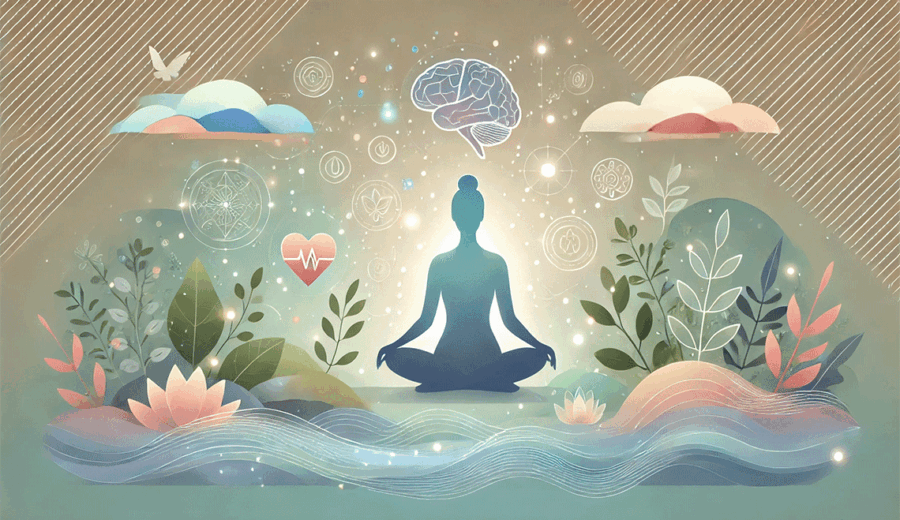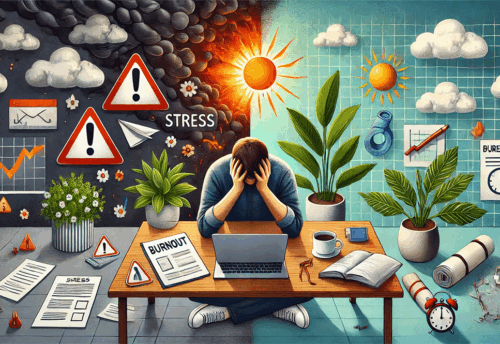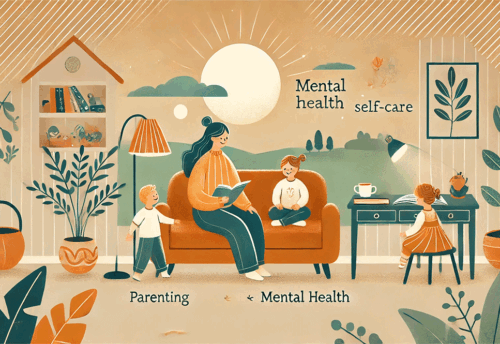
December 2, 2023
The Role of Mindfulness
The Role of Mindfulness in Managing Stress and Anxiety
In today’s fast-paced world, stress and anxiety have become common challenges for many. Mindfulness, an ancient practice rooted in being present and aware, offers a powerful way to navigate these challenges. By fostering a deeper connection to the present moment, mindfulness helps individuals manage stress, regulate emotions, and achieve mental clarity.
What is Mindfulness?
Mindfulness is the practice of consciously focusing your attention on the present moment without judgment. It involves:
- Awareness: Noticing your thoughts, feelings, and sensations as they occur.
- Acceptance: Observing these experiences without labeling them as good or bad.
- Presence: Remaining fully engaged with the “now” rather than dwelling on the past or worrying about the future.
How Mindfulness Helps Manage Stress
- Reduces the Stress Response: Mindfulness lowers the body’s stress response by calming the sympathetic nervous system. Techniques like deep breathing and body scans can reduce cortisol levels, the hormone linked to stress.
- Improves Emotional Regulation: Practicing mindfulness helps individuals recognize and manage their emotions. By observing emotions without reacting impulsively, people can respond to stressful situations more thoughtfully.
- Enhances Resilience: Being present enables individuals to face challenges with a clearer perspective, reducing feelings of overwhelm and fostering problem-solving.
Mindfulness Techniques for Anxiety
- Mindful Breathing:
- Focus on your breath as it flows in and out.
- If your mind wanders, gently bring your attention back to your breathing.
- This helps ground you and eases anxious thoughts.
- Body Scans:
- Lie down or sit comfortably and bring your attention to different parts of your body.
- Notice any tension or discomfort, allowing yourself to release it consciously.
- Meditation:
- Set aside a few minutes daily for quiet reflection.
- Use guided meditation apps or focus on a single thought, such as gratitude.
- Mindful Movement:
- Practices like yoga and tai chi combine physical activity with mindfulness, promoting relaxation and focus.
Benefits of Mindfulness
- Improved Mental Clarity: By reducing mental clutter, mindfulness helps improve focus and decision-making.
- Better Sleep Quality: Mindfulness calms the mind, making it easier to fall asleep and achieve restful sleep.
- Enhanced Relationships: Being present helps individuals communicate more effectively and connect deeply with others.
- Reduced Physical Symptoms: Mindfulness can alleviate physical symptoms of stress, such as headaches, muscle tension, and fatigue.
Incorporating Mindfulness into Daily Life
- Start Small: Begin with just 5 minutes of mindfulness practice daily, gradually increasing as it feels comfortable.
- Integrate into Routine: Practice mindfulness during everyday activities like eating, walking, or even washing dishes.
- Be Patient: Mindfulness is a skill that improves with consistency. Allow yourself time to adapt to the practice.





Leave a Reply